How long do guinea pigs live?
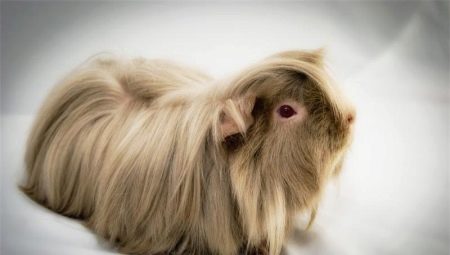
Unfortunately, sooner or later you have to say goodbye to all pets. Some of them stay with us for life, become true friends. The life of others is more fleeting, but they, too, take root in our memory forever, evoking only the most pleasant memories. Sometimes you want to know how long this or that animal can be around, and therefore today we will talk about how long guinea pigs live. What determines their lifespan?
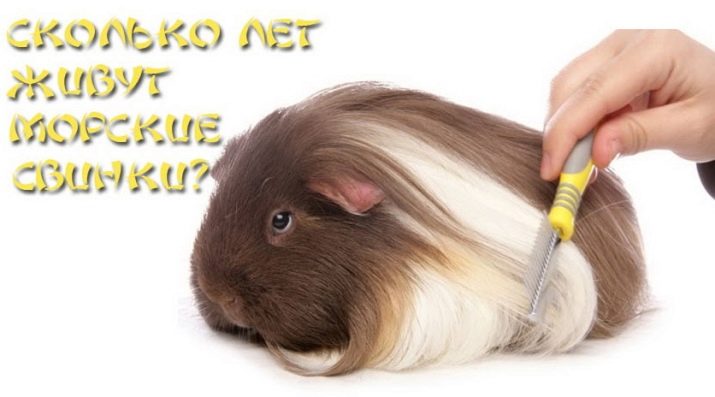
Life cycle and averages
Unlike other representatives of their order, guinea pigs are considered to be real centenarians. The approximate lifespan of these pets in captivity is up to 8 years, and in the natural environment – to 10. That is why these animals are bought - no one wants to say goodbye to a new family pet every year.
The homeland of these animals is South America, where Europeans first discovered them. The small animals caused a real sensation among the civilized public: they were cute, adorable, easy to care for and friendly. After the popularization of pigs around the world, numerous works began on crossing and breeding new decorative species. Unfortunately, selection has led to the fact that the life span of new breeds has been significantly reduced (up to 5-7 years).
The longest-lived representative of these animals is considered a guinea pig-boy from England, he managed to cheat death up to 15 years (14 years and 9 months).
Depending on environmental conditions and care, the lifespan of guinea pigs can vary significantly. Why this happens, you can read a little below.
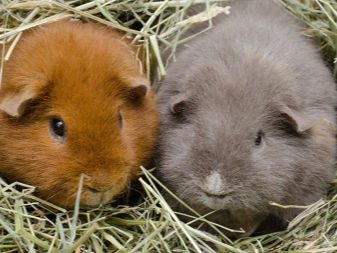
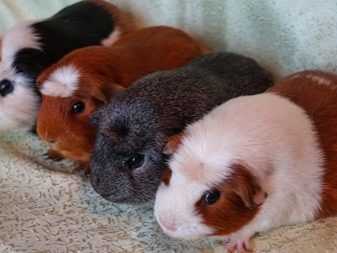
Even in the most favorable conditions for keeping this animal at home, individual individuals rarely live up to 8 years. Examples of reasons for this average lifespan at home include:
- unsuitable environment;
- unscrupulous care;
- improper nutrition;
- disdain for symptoms of diseases;
- breed as well as heredity.
Each of these reasons will be discussed in detail below.
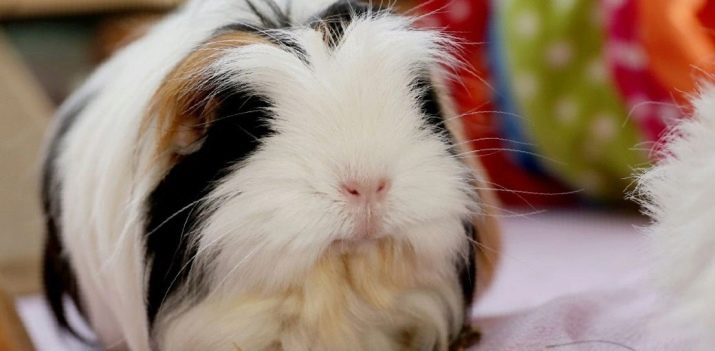
Keeping guinea pigs in zoos and aviaries suggests that the potential lifespan of these animals is further reduced. The reasons may be as follows.
- Poor quality feed, dirty water. Usually these animals are kept in small groups of up to 10 individuals. Food for such a large number of animals is most often bought in bulk and stored in a specific place that is not well looked after. Which already affects its quality. The same goes for variety in the diet, which an individual in captivity clearly will not receive.
Simply put, caring for a single individual at home is usually much more effective than caring for the same individual in private breeding and storage facilities.
- The quality of care. Untimely replacement of old food with a new one, admitting rotting of old products, insufficient care of enclosures due to a large number of other animals, as well as the lack of minimal entertainment and toys.
- Constant nervous tension. Any animal from the zoo needs time to get used to being teased, called, it is not clear what to feed and constantly distracted. Against the background of these actions, mental disorder and depression can develop, to which guinea pigs are also susceptible. Animals with these disorders do not stay in the zoo for long, especially animals such as guinea pigs.
All that these animals have in their cages is socialization in a society of their own kind. However, when it comes to socialization and the rules of care, leaving should still be a priority.
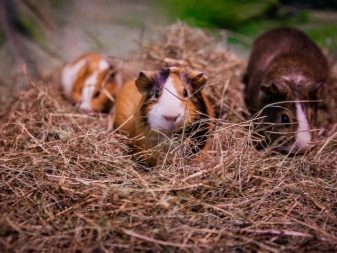
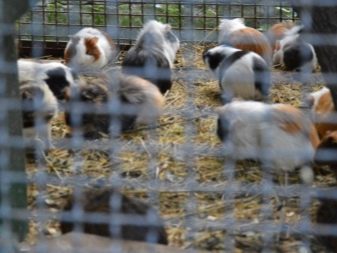
Factors affecting life expectancy
All varieties of guinea pigs also differ in interbreed characteristics. There are 3 types of guinea pigs, depending on the thickness of the hairline.
- Long haired guinea pigs breeds such as Peruvian, Abyssinian, Sheltie, Coronet. All pigs on this list have long coats that need careful grooming. They do not live very long, the average life expectancy is from 5 to 6 years.
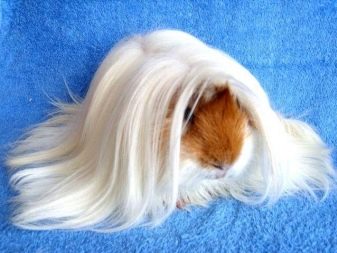
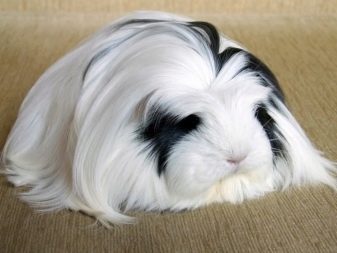
- Shorthaired guinea pigs do not require much and painstaking care and live up to 8 years. Known breeds: American, Crested, Himalayan, Texel, Royal.
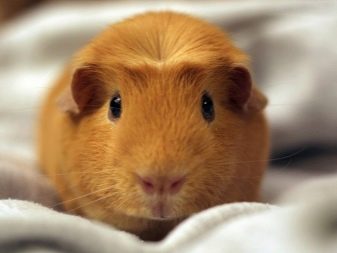
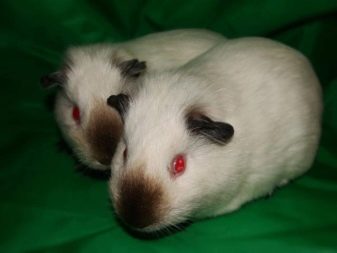
- Hairless guinea pigs were bred by selection for people with an acute and uncontrolled form of allergy to the wool of these animals. They have an average life expectancy of 4 years, some individual individuals are able to live up to 8 years. These pets are the easiest to care for due to the absence of coat problems. Known breeds: skinny baldwin.
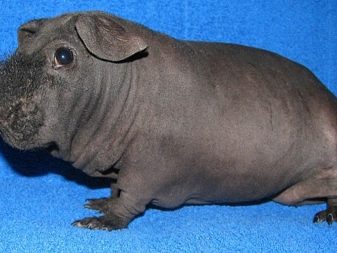
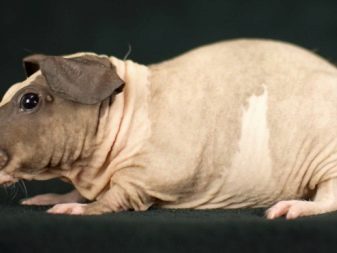
The lifespan of any pet depends not only on its species or breed, but most often it is the result of a whole range of conditions. The conditions of detention are the first thing you should pay attention to when buying an animal. Guinea pigs can hardly be called fastidious animals, however, in some environment they feel good, and in some they can quickly wither away. What it depends on, we will consider further.
An aviary, cage or container for a pet should be spacious, wide and not particularly high at the same time. The material for the cage must be durableso that the animal cannot gnaw it and rather heavy, so that the structure does not turn over from the weight of an adult during games or feeding. As such materials usually choose metal or glass.
- Metal cages good because oxygen circulates well through them, they are durable and easy to clean.
- Glass the heavier one, gets dirty faster and does not allow fresh air to pass through so well, especially if it is a continuous aquarium. At the same time, metal cages are much more expensive.
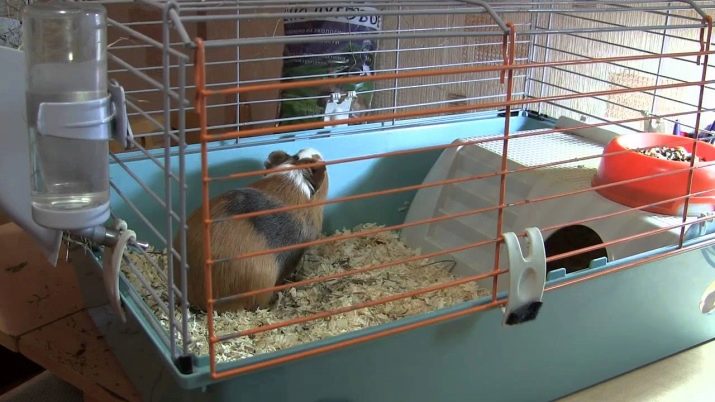
The main condition for any cell is a large amount of free space for relaxation and entertainment.
Be sure to place objects for games in the cage, these can be perches, horizontal stairs, houses, tunnels, a wheel. Games stimulate the animal's physical activity, give it more strength. Physical procedures are beneficial for health, strengthen the body, burn excess fat and improve digestion.
Guinea pigs are among those pets that do not tolerate being in the same space for a long time. Against the background of boredom, real depression can develop. To avoid this, it is enough sometimes to take the pig for a walk somewhere out of town. Avoid walking in parks and courtyards near roadways and industrial facilities. It is better to do this somewhere near the city, having previously checked the meadow vegetation for the presence of harmful plants and grasses.
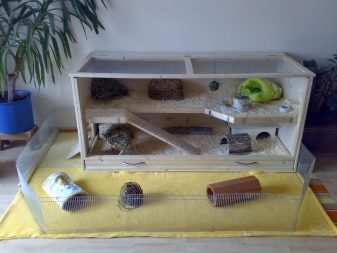
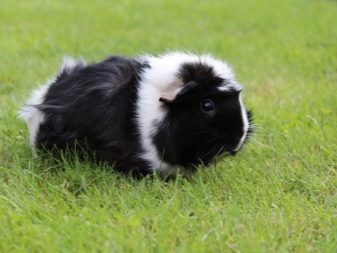
If you are afraid to let your pet out into the street, you can send it for a walk around the room under vigilant supervision, but make sure that the animal does not take anything harmful into its mouth, it is especially dangerous to eat house plants... Many of them are very dangerous to guinea pigs.
The predisposition to diseases caused by inadequate diet or care also greatly affects the lifespan of the animal. Guinea pigs have strong immunity, however, they can be weakened by poor diet.
And here it is extremely important to keep track not of the diseases themselves, but of the first symptoms and signs, in order to prevent the disease at the initial stage.
Signs can be as follows:
- the animal looks sluggish, moves slowly or does not move at all;
- breathing is hoarse and difficult, there is shortness of breath;
- the animal has systematic seizures with convulsions and shudders;
- the hairline begins to fall out, abscesses and ulcers form on the body;
- disruption of the gastrointestinal tract is noticeable - diarrhea, constipation;
- poor appetite or lack of it, strong thirst;
- the eyes are watery, it flows from the animal's nose;
- the coat looks matted and stuck together;
- scratching is observed all over the body, the animal cannot sit still.
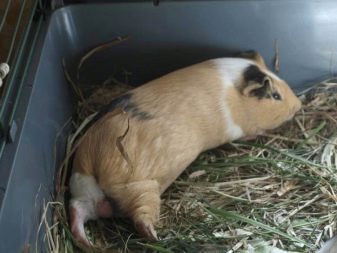
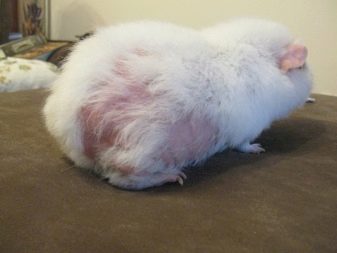
If you find any of these symptoms, you should immediately contact your veterinarian.
The best way to determine the current state of your pet is to offer to play games. It is by the activity and movements of the animal that you will understand that something is wrong with it. No self-medication!
Heredity Is one of the most important factors to look out for when choosing and buying a guinea pig. Buying a pig directly from a pet store is good because you are given documents with information about the parents, as well as about the hereditary predisposition of the animal to certain diseases. Unfortunately, when the disease manifests itself, you cannot do anything about it or somehow influence the outcome.
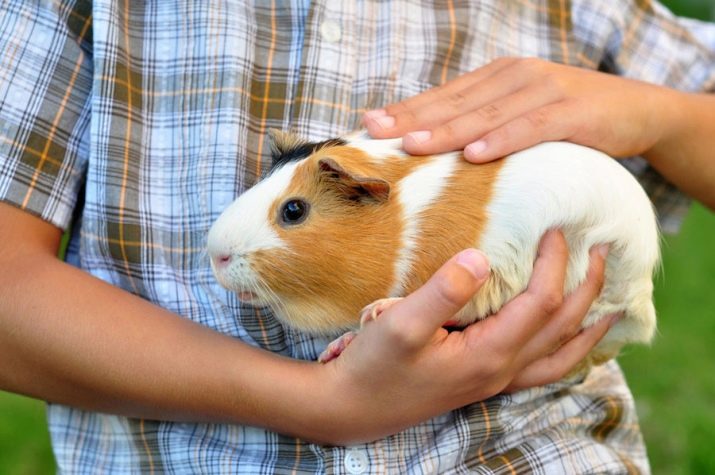
Proper nutrition - another important factor, which affects not only the well-being of the animal, but also its mood, level of activity and playfulness. This animal is a gourmet when it comes to feeding. For example, guinea pigs suffer from acidic vegetables and fruits (lemon), fruits and berries with a high fructose content are also extremely harmful for them (tangerines, strawberries, blueberries), like all fermented milk (milk, cheese, cottage cheese), meat and bakery products (meat, bread, crispbread). Eating any of the foods on this list could potentially lead to the death of your animal.
Another important point concerns assimilation of ascorbic acid or vitamin C, which the digestive tract of these animals cannot physically synthesize. It follows from this that either synthetic vitamin C or its natural replacement in the form of fruits and vegetables should be present in the diet every day.
Another problem in the diet of guinea pigs is binge eating. The fame of irrepressible gluttons has been fixed for animals, who do not know when to stop.
If you do not make sure that the food doses are uniform and regular, rather than large and spontaneous, it is likely that your pet will develop obesity. And obese guinea pigs don't usually live long.
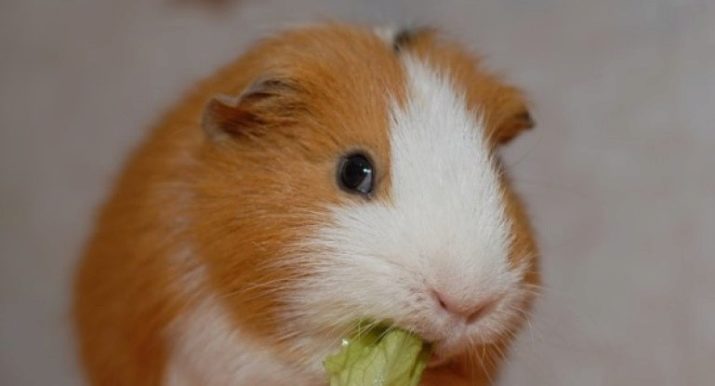
The daily diet should consist of the following foods:
- special food, green or dry - 60%;
- hay, tree twigs, delicacies - 20%;
- fruits and vegetables - from 15 to 20%, vegetables should be given every day in small quantities, fruits - every other day.
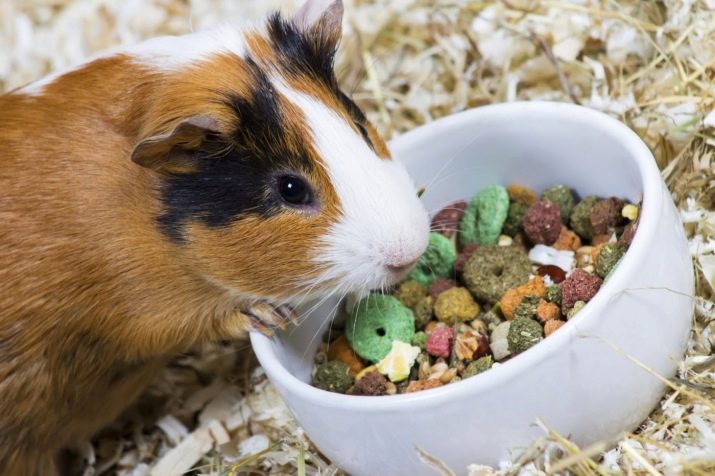
How to take care of it properly?
It is not only nutrition, housing conditions or heredity that shape life expectancy in guinea pigs. Everything very much depends on your regular pet care. Pigs are not the kind of pets that you can simply put in a cage and leave there for the whole day. There is a set of rules that every guinea pig breeder must adhere to. You can find them below.
- All food and water must be fresh.... The water container must be free of dirt or food residues. All excess vegetables and fruits must be immediately removed from the enclosure, otherwise they may deteriorate. Change the water every day, it should be fresh, but settled. Also, try to wash your pet cage regularly.
- An aviary, cage or container with an animal should be placed in a distant, warm corner of the room. The place should be well ventilated, free from drafts and direct sunlight.
- Keep track of your pet's appearance... Buy a special comb to tidy up the hair on the withers and torso of the animal, otherwise tangles will form. Clean your pet's ears and eyes regularly, check them for parasites and dirt, mucus.
- If you give the animal only juicy food and fruits (to the detriment of dry food), you may encounter the problem of regrown teeth. You should not sharpen them yourself, otherwise you will harm the animal. The procedure can be ordered from your veterinarian.
- In addition to the fight against regrown teeth, over time there will be a problem with too long claws. Growing back, they can not only interfere with the pig's own movement, but also harm you when you take the animal in your arms. There are special devices for sharpening claws, however, the easiest way is to use a nail clipper. To avoid further harm to the animal, cut off only those parts that really bring him obvious discomfort.
- Be careful when prescribing water treatments for your pet... In the wild, this animal can hardly be called clean, and therefore washing should be carried out only when necessary. For baths, you should use special hypoallergenic shampoos on a natural basis. After bathing, remember to dry your furry friend, otherwise he will catch a cold.
- The approximate temperature of the water when swimming should be at least 32 degrees. If we talk about a favorable average temperature, then under normal conditions it should be at least 18 degrees Celsius. Anything below, even in spite of the abundant hair, means coolness for guinea pigs.
- The bedding in the cage must be natural, the most commonly used hay, which must be removed regularly when contaminated.
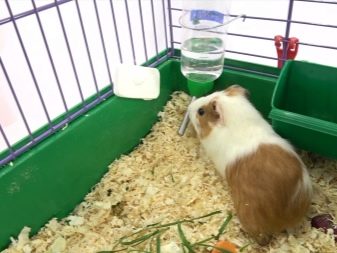
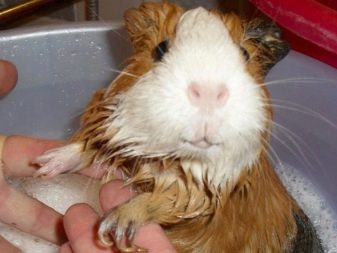
How do you determine your current age?
Unfortunately, there are no exact ways to determine the current age of an individual up to the month and day, you will have to trust the seller or breeder when you buy the animal. Thanks to the factors below, you can determine the approximate age of your furry friend.
- Young and still gaining strength individuals they are always more active and mobile, they cannot sit still for a minute, stick their nose in literally all corners.
- Adult growth reaches about 25-30 cm, in terms of weight, it ranges from 800 to 1000 grams in females and from 1 to 2 kilograms in males.The weight of young (less than a month) individuals rarely reaches more than 500 grams.
- Much can be learned from the condition of the coat. If it is shiny, young, not crumpled, well-groomed, soft, then by all these signs in front of you there is a young individual not older than 3-4 years. If bald spots, bedsores or lumps are present, the specimen is over 4 years old.
- The approximate age can also be found by the incisors: in young individuals, they are snow-white, in adults and old individuals, the color is close to yellow.
- Claws can tell a lot about age too it can be identified by the shape and presence of clipped claws. In addition, the claws of young individuals are slightly transparent and smooth; in old individuals they can be bent in different directions and slightly bumpy.
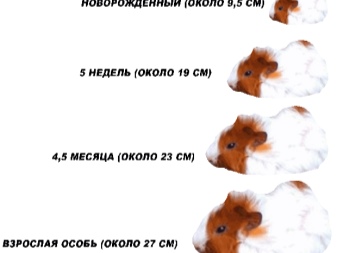
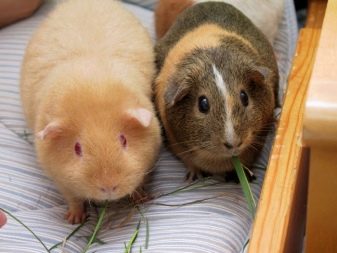
It is not recommended to buy individuals over 2 years old. As a rule, they are already adapted to strictly defined food and specific conditions of detention. Pets will get used to the new diet and environment for a long time and painfully. Little guinea pigs are much easier to teach. Moreover, diseases at an early age are much easier to treat than during full maturity.
When buying, it is worth asking the seller for documents, where the exact current age will be indicated, as well as the birth weight. By these two factors, you can determine if someone is trying to trick you.
If we draw a parallel between the age of these animals and human life, it turns out that one year of their life is equal to our 12-15 years.
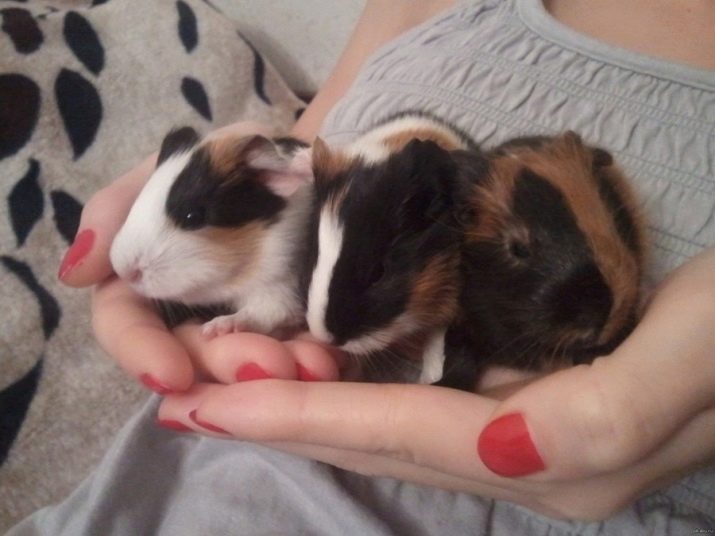
For more information on the guinea pig, see the next video.








